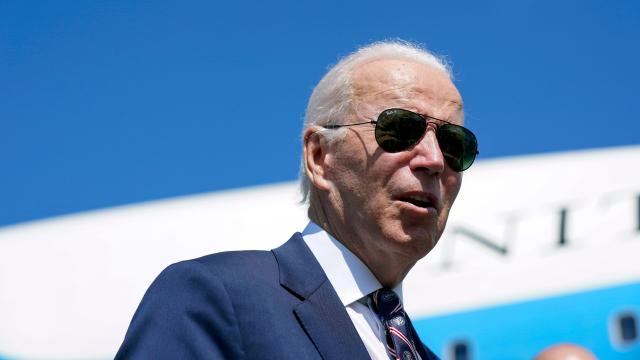Since taking the White House in November 2020, President Joe Biden has issued repeated calls to amend one of the most foundational laws governing the internet, Section 230 of the Communications Decency Act. His latest call to do so came Thursday during a “listening session” on tech platform accountability.
Among other “core principles for reform” announced Thursday, the Biden administration has called for the removal of “special legal protections for large tech platforms,” namely, the liability shield that protects social media platforms that distribute third-party content.
Section 230 was passed in 1996 as part of a broad effort by Congress to prevent minors from being bombarded online by pornography. The laws of the era had largely prevented website operators from tackling the challenge; any effort to moderate online content had the unfortunate effect of increasing their civil liability. To mitigate this problem, Congress enshrined Section 230 into law, enabling tech companies and ordinary website owners to axe problematic content without fear of being buried in litigation.
Without Section 230, the internet as we know it would not exist. Operating a social media platform, in particular, would represent an enormous liability to any company. Imagine a world in which the Wikimedia Foundation could be sued directly over any changes to Wikipedia made by its army of millions of unpaid editors. Realistically, the site would cease to exist. (If you enjoy leaving comments on our blogs here at Gizmodo, you have Section 230 to thank for the privilege.)
Over the past half decade, Section 230 has become a hot-button issue among both Republicans and Democrats, often for very different reasons. Many lawmakers have come to view the protection this provision of law allows as too strong a shield for companies that host enormous amounts of troubling content — from health and political misinformation to pages and groups instigating real world violence.
Many experts argue that fiddling with the foundational law presents significant risks that would ultimately lead to speech being significantly curtailed online. Imagine again, if a company like YouTube had greater reasons to fear being drowned in lawsuits, and what that might mean for the amount of content that gets banned on the platform. Companies like Twitter and Facebook have already shown themselves to be fairly inept when it comes to discerning harmful content from the benign, and one could only imagine how much more widespread unjustified account suspensions might become with the constant threat of financial loss dangling over their heads.
This is why, acknowledging the problem, many digital rights organisations pushing for better content moderation at the big social media firms have sought non-legislative solutions to problems of misinformation, racism, and violence, i.e., pressuring companies to implement better filters and procedures internally. (It’s also worth noting that most of these campaigns have yielded little results, most of the time.)
Biden has a long history of calling for Section 230 “reforms,” which differ starkly from the kind of language he used on the campaign trail. In January 2020, then-candidate Biden told the New York Times the law should be “revoked, immediately.” Pressed on the issue by reporter Charlie Warzel, who noted the law was “foundational” to the modern internet, Biden repeated: “That’s right. Exactly right. And it should be revoked.”
After taking office, Biden adopted a more tenable position, exchanging the word “revoke” for “reform,” while filtering most of his thoughts through his former press secretary, Jen Psaki. In October 2021, for instance, Psaki told reporters that Biden supported “privacy and antitrust reforms as well as more transparency.” Reforms were mentioned again in November 2021, alongside criticisms of social media failures to crack down on misinformation related to vaccines and elections.
The White House has referenced Section 230 several other times since, but with no higher degree of specificity. Perhaps the most notable aspect of the language employed by those at 1600 Pennsylvania this week was to single out “large tech platforms,” in particular. Several bills in recent years have done just that, adopting language designed to segregate the Googles and Facebooks of the world from smaller mum-and-pop websites, limiting enforcement to corporations pulling in over $US500 ($694) million a year, or with over a billion users worldwide, as an example.
Arguably, though, it’s not actually Biden’s responsibility to decide if, or how, Section 230 gets amended. That would be Congress’ job. Biden is fulfilling his role by merely keeping the subject fresh, and urging legislators to take some sort of action. A slew of laws aiming to do just that have been tossed around by both parties in both chambers, but none have ever come to a vote. As many of these bills have contained either terribly vague or overly aggressive text, the internet might ought to be grateful.
